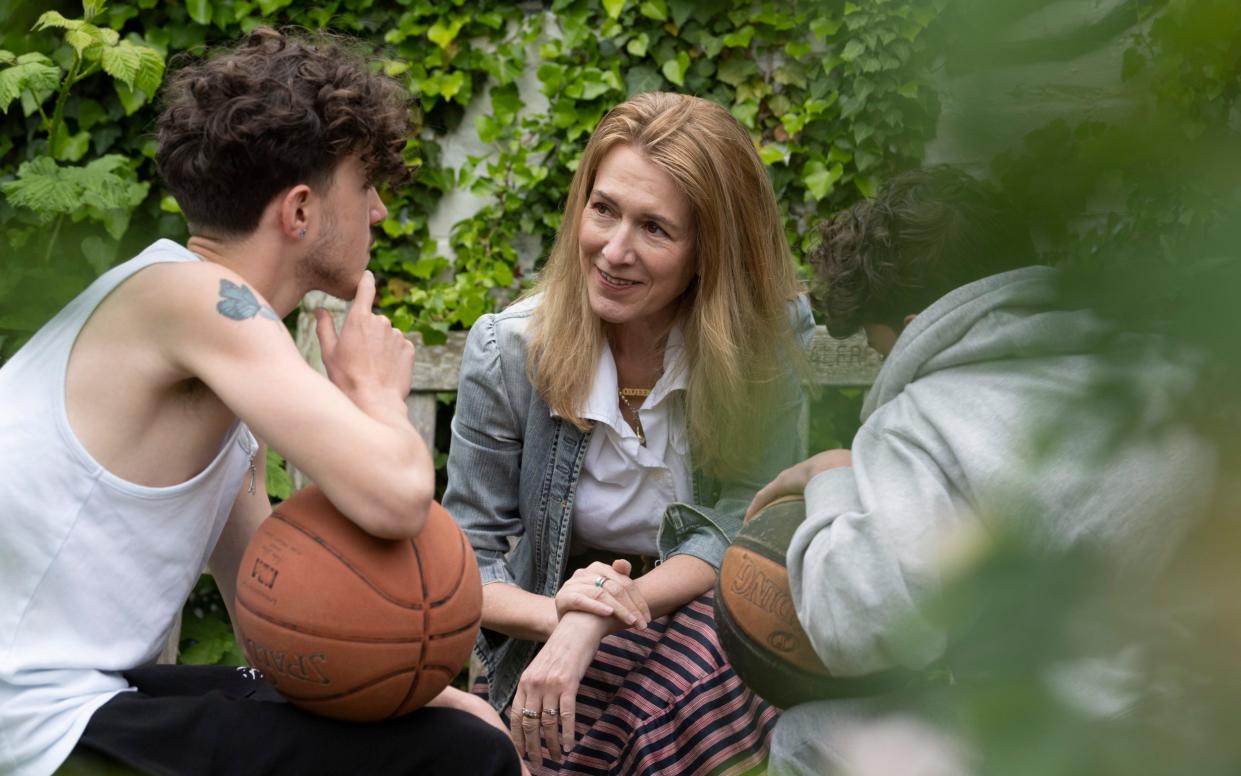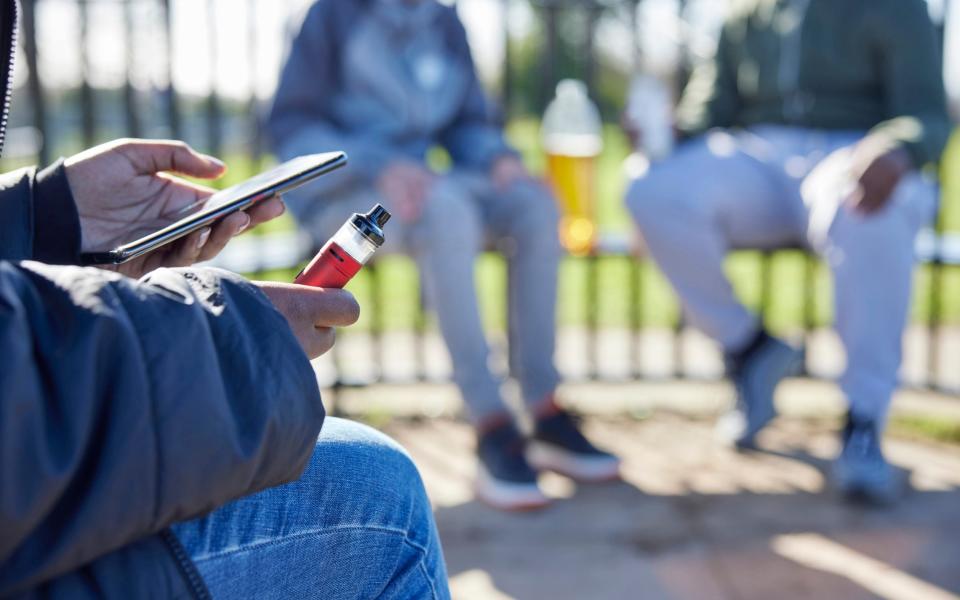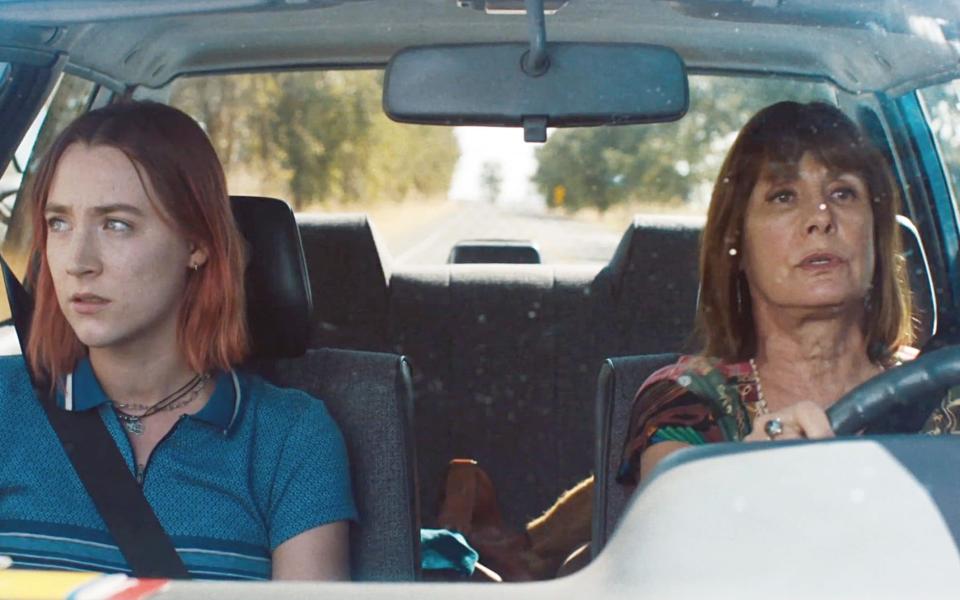‘Do you watch porn?’ and six other awkward questions you should be asking your teenager

I think half-term should be renamed “Talking to Teens Week”. It’s often hard to find space for in-depth conversations when you’re all overwhelmed with school or work. We all need a break to catch up – as became particularly clear to me in mid-May when, one weekend, I discovered my 15-year-old hadn’t been entirely truthful about his whereabouts.
He’d said he was having a “sleepover” with a classmate. In fact, he and his friends went to an illicit house party where a girl their age had been left to her own devices, as an older sibling had reneged on teen-sitting duty. Before you could say “Inbetweeners”, 100 young people descended. What followed was a trashed house, a few kids on “pingers”, which I now know is slang for ecstasy, and the police being called. And all of this took place in a well-heeled part of town; the teen hostess attends a private school and the miscreants were thoroughly middle-class.
Thankfully, my boy wasn’t involved in the antisocial behaviour but I was cross nonetheless. Yet his escapade hammered home that the teen years were fully upon me. I’ve now notched up quite a few “teen miles” and between my boys, their cousins and my sons’ friendship groups (which include girls) I’ve become familiar with most of the common issues. I also used to edit the Erotic Review and have experience broaching awkward topics.

Of course, teenagers now face particular problems – for example lockdown was traumatising for teens, not to mention navigating social media and easy access to disturbing material. A study by the NSPCC found that one in 10 children aged 12 to 13 were worried they were already addicted to porn.
And the science on their brains has evolved too, according to psychologist Aaron M White, author of What Are They Thinking?!: The Straight Facts about the Risk-Taking, Social-Networking, Still-Developing Teen Brain. “The adolescent brain is still developing,” he says, acknowledging that this means talking to teens can be hard. But he stresses the importance of not giving up and trying to understand through maintaining lines of communication.
The best time to have a conversation is when you’re driving somewhere, side by side, on equal footing. Ask questions, and be honest whenever possible – because if you’re not truthful, why should they trust you? Here are the questions you need to ask your teen:
Have you tried vaping?
Vapes are the cigarettes of Generation Z, directly targeted at them with flavours like bubble-gum. If your child has an active social life and denies having tried one, it’s a fair bet they’re being economical with the truth, just as you probably lied once about smoking.
The best thing to do is to be pragmatic. Admit a bit of party use may do no real harm, but say vaping is a pointless expense and habit-forming and that while no one really knows about the long-term harms of regular usage, there’s growing concern. Research shows excessive use can lead to addiction and damaged lungs. Teens think they’re going to live forever so invite your kid to look at newspaper images of vape-using teens in hospital after their lungs have collapsed.
What they will ask you: “Have you ever smoked?” Yes, do I look like Doris Day? But it’s a vile habit, wrecks your lungs and is more ageing than sun and booze combined.

Have you been offered – or tried – drugs?
This is a necessary but delicate line of inquiry, as it leads to questions about who, in a group of friends, is sourcing or even dealing drugs. Boys in particular have a code of honour where they’d do anything to avoid “grassing up” a mate.
It’s realistic to assume that drugs are readily available in most teen circles and the days when a simple joint was passed around are long over. Now “weed” is the entry level substance, but MDMA (and its tablet form, ecstasy) abound and older teens will be two phone calls away from ketamine.
If your child is curious, they’ll try something at some point – just try your hardest to delay that process. I’ve told my sons their developing teenage brains are still plastic and drug use can cause terrible mental health issues.
What they will ask you: “Have you ever taken drugs?” I was able to tell my boys that my worst flirtation with illicit substances was at university when I tried cannabis via a bong – it was terrifying, I hallucinated and thought I might die. Which kills the idea that dope is always harmless.
Have you watched porn?
Any teen with a smartphone is a click away from explicit and hugely disturbing material. So the chances are they’ve seen some vile images and taken some of it as sex education. Yes, that includes girls, but boys are far more likely to be regular porn users.
Again, it’s better to get your teen to talk about what they’ve seen, rather than to read the riot act. I’ve always taken the view that sexual shame is counterproductive, as it racks up inhibitions and neuroses. If you’re open, then you can discuss the moral, emotional and sociological implications.
The key message is that porn is a fantasy realm, a terrible twisting of real and unreal bodies. Girls need to know they aren’t required to behave like porn stars and that pubic hair is natural and attractive. Boys have to recognise that pornography objectifies women and sets unrealistic expectations.
What they will ask you: “Have you watched porn?” Given my career, the answer to that is a no-brainer. Other parents should be truthful but tell teens the material that’s now available online is much more concerning. Point them instead towards the excellent TV series Sex Education.

Are you seeing anyone?
A gentle probe around the issue of relationships (maybe asking if a child’s close friend has a love interest) can ferret out snippets, but all teenagers keep their romantic cards close to their chest. The conversation around consent should happen with every teen, so girls can say “no!” to anything that convenes their personal boundaries and boys must be taught to ask – and wait – for genuine permission.
Talk about contraception early and ensure boys recognise this is a shared responsibility. Give your teen condoms as soon as it’s remotely relevant and make sure they know how to access sexual health services. Don’t assume anything: I phrase questions to demonstrate I’m open to them being straight, gay or merely experimental.
What they will ask you: “How old were you when you first had sex? Have you ever cheated?” Be honest about when you lost your virginity. You can always caveat it with “I was too young and not emotionally ready”. I was a late starter, aged 20, and told my boys: “I wanted to wait for someone who made me feel special and safe.”
The second question is harder. It’s fine to say: “My private life is private – as is yours. But always try to treat other people with respect.” It’s also important to tell your children that lies are toxic.
Do you ever feel depressed? Have you ever felt tempted to self-harm?
Anxiety and depression are rife in teens – ramped up by Covid, the social deprivations of lockdown, homework and exams, and the pressure to look Instagram-perfect. Self-harming is so common among both sexes that you need to be on high alert if your child starts covering up in warm weather. Again, talking about anxious peers, or your own teen uncertainty, can provide an opening. And if your child tells you a friend is deeply unhappy, make sure their parents get that information – without betraying their source.
What they will ask you: “Have you ever felt depressed, or suicidal?” It’s generally helpful to tell an angst-ridden child about your own teen misery, so they know these experiences can be surpassed, but don’t give a blow-by-blow account. Children have a deeply-rooted instinct to channel their parents, which can be unconscious. If you tell them about a self-destructive episode in detail, you may seed ideas.

Are you eating?
Such a simple question, but if your child looks peaky and thin, then it’s likely they’re deliberately denying themselves calories. This is more common among girls – but boys can do it too. There are no easy answers to the most complex of adolescent psychological disorders, but anything you can do to emphasise diverse, robust, full-bodied ideas of beauty will help. And keep meals healthy, but tempting.
What they will ask you: “Have you ever had an eating disorder?” Answer honestly, but say that there’s nothing more boring or pointless than counting calories, or denying yourself pleasure.
Does bullying happen at school?
Make this question general and be aware that while it’s crucial to find out if your child’s being tormented, it’s equally important to know if your teen ever dishes out some unpleasant behaviour. Your natural parental instinct makes you murderous towards anyone who inflicts misery on your child, but there’s usually two sides to every story.
What they will ask you: “Were you bullied? Were you a bully?” Most children have made someone miserable at some point. I told my boys that sometimes the people who are vilest to you end up being your best buddies.

 Yahoo News
Yahoo News 
